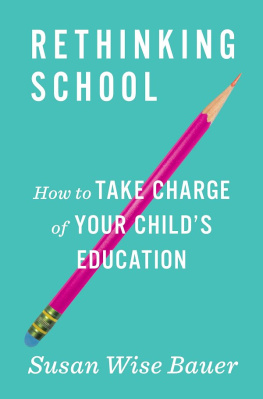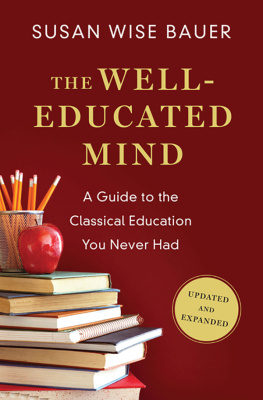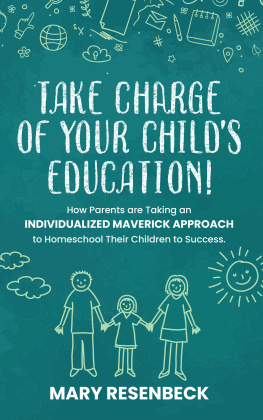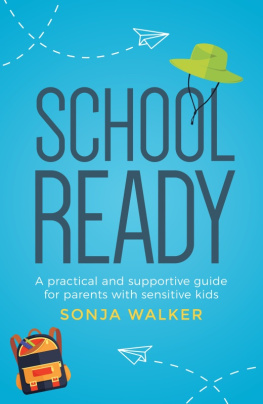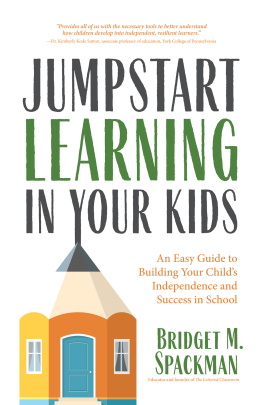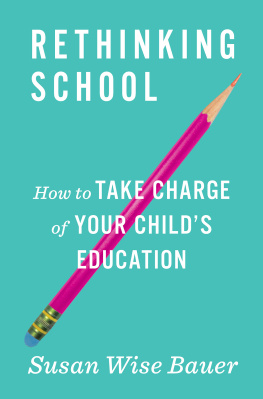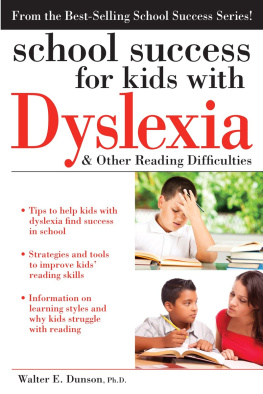Rethinking
School
HOW TO TAKE CHARGE OF
YOUR CHILDS EDUCATION
Susan Wise Bauer

W. W. NORTON & COMPANY
Independent Publishers Since 1923
NEW YORK | LONDON
To my colleagues and friends at the Well-Trained Mind enterprises:
Kim, Jackie, Mel, Justin, Kevin, Pattie, John, Elizabeth,
Julia, and Steve. Its a joy to talk education with you.
A merican K12 school is a modern product of market forces.
Its grades and subjects are largely arbitrary. It isnt a good fit for all (or even most) students. It prioritizes a single way of understanding over all others, and it pushes out other important things that children under eighteen should be doing (like daydreaming, exercising, drawing, working, and sleeping).
You have to put your kids into it anyway.
Even if youre a home educator, youre still in the K12 system. Youve still got to usher your child through twelve grades and an artificial array of subjects, and provide proof that youve done so.
But all parents can learn how to flex our K12 system so that it fits our childrenrather than forcing our children to conform themselves to school.
This book is a guide to one aspect of sane, humane parenting: negotiating our twelve-grade school system in a way that nurtures and protects your childs mind, emotions, and spirit.
Part I, The System, introduces you to the current state of American education.
Part II, Mismatches, identifies possible misalignments between children and the system that tries to educate them.
Part III, Taking Control, gives specific strategies for dealing with those mismatches, while still staying within the traditional K12 framework.
Sometimes our K12 system isnt just a pair of shoes that pinches and needs to be cobbled, though; its such a bad match that stepping out of the shoes completely (and running away barefoot) is the only thing that will keep both you and your child sane.
So Part IV, Rethinking the System, offers you a series of thought experiments, ways to re-envision what education could look like.
Part V, Opting Out, follows up with guidance on how to begin to put that education into place.
Theres no one strategy that works for every family. Your child may be working above or below grade level, struggling with a diagnosable difficulty, stranded in a bad classroom, or simply being taught in a way that doesnt fit the way he thinksand the answer may be any one (or more) of the strategies offered across the entire book.
And even if you dont think youre ready to abandon the system-as-you-know-it, try out the thought experiments in Part IV. You might find yourself seeing school with new eyes.
Authors note: The italicized quotes are all from real parents of real K12 students. I have occasionally changed inessential identifying details.
C hildren are infinitely varied: made up of a riotous myriad of aptitudes, ways of understanding, physical and intellectual and emotional talents; maturing on a huge spectrum of readiness, from those who were born old souls to the recklessly heedless young adult; some finding a clear path forward very early, others still struggling to find purpose into their twenties.
School varies little. Less, as each grade ascends.

Children change constantly. Between the ages of five and eighteen, their minds develop endless connectionsmajor thoroughfares and fascinating side streets, byways and overpasses and intriguing little cobbled alleys, roadblocks and work-arounds: in Edith Whartons words, throwing out countless tendrils of feeling and perception, changing month by month (sometimes week by week) into something new.
From first grade on, school barely changesexcept to become more restrictive, and even more narrowly focused on arbitrarily selected important skills.

Children are (as C. S. Lewis might have put it) amphibious: half animal, half spirit. Their bodies mature on a timeframe they cant control. They dont know why (and sometimes arent even aware of when) they are hungry or restless or yearning or sleepy. These physical currents intertwine with and disrupt their emotions and imaginations and intellects. Their eyes, or ears, or brains, or hands, dont always work with the polished efficiency of a factory-tooled machine. Blocks and problems get in the way.
School has no body. School serves a Platonic child, one who doesnt suddenly melt down, or get overwhelmed by a tidal wave of hormones, or unexpectedly need fourteen hours of sleep.

By school, I dont simply mean the buildings where children go to sit in a physical classroom and learn.
I mean our entire K12plus system, the one that we tend to think of as normal: Classify yourself by the month and year in which you were born; group yourself with those born within twelve months of you; study seven or eight unrelated subjects in blocks, four or five times per week; do this for twelve or so years, but not usually during the summer; at least once a year (usually much more often), fill out lots of bubble sheets with a #2 pencil; after twelve years of this, go away and live in a group home with others born within four years of you, while attending lectures and choosing a major that doesnt necessarily line up with any particular adult pattern of life.
The physical institutions of local elementary, middle, and high schools add an additional layer of artificiality: Leave home and travel to a place, where you sit in a room with that group of others who were born within twelve months of you; do this from September to June, unless it snows; study your subjects in fifty-minute blocks, four or five times per week; listen to someone at the front of the room, and then go home and complete a series of randomly assigned tasks.
Oh, yes: Fill out lots of bubble sheets with a #2 pencil.
This has nothing to do with the way that actual human beings acquire knowledge.
In this book, Ill offer you a whole array of strategies to help your child not just survive, but prosper, in the K12 years. But none of them will work unless you can first perform a mental somersault and change your point of view.
Realize that the way we do school is entirely unnatural.
And when your child struggles, think about how to flex the system, before you start trying to adjust the child.

I have three sons and a daughter, and one of my sons is an outlier.
Physically, he was always different: a strong resemblance in features to the others, but much taller and thinner, constantly moving, a child who slept far less and did much more than his siblings. He was an early talker and walker, physically coordinated, clearly smart.
But when he was three years old, he still didnt seem to know his colors. What color is this? Id say, holding up a blue block, and hed randomly yell out Yellow! Green! Yellow!
I think hes color blind, I said to my father, whos a board-certified pediatrician.
No, hes not, my father said. He just doesnt care. Hes saying the first thing that comes to mind just to shut you up.
As it turned out, yes, thats exactly what he was doing. He had his own agenda, and telling me the color of the random block I was waving in his face was way low on his priority list.
In fact, he rarely did anything that he couldnt see the point of. My other children would finish essays, complete worksheets, and perform math drillssometimes accompanied with loud complaints, but they would
Next page
